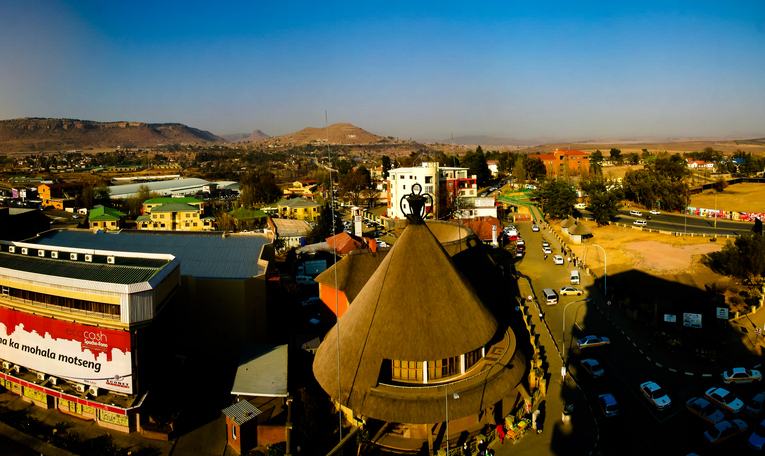Communications law in Lesotho is undergoing a quiet transformation. Historically focused on licensing traditional telecommunications providers, the legal framework is now shifting to address the demands of digital convergence, spectrum allocation, cross-border data flows, and emerging technologies.
At the centre of this shift is the Lesotho Communications Authority (LCA), the statutory regulator empowered under the Communications Act 4 of 2012. This article critically explores the development of Lesotho’s communications law, examining key statutes, regulatory institutions, digital trends, and the legal challenges presented by an increasingly connected world.
The Legal Framework
Lesotho’s communications sector is principally governed by the Communications Act 4 of 2012, which replaced the earlier 2000 statute. The 2012 Act significantly broadened the scope of regulation, extending oversight beyond telecommunications to include broadcasting, postal services, internet governance, and spectrum management.
Key features of the Act include:
- Universal access mandates
- Licensing and regulatory compliance
- Consumer protection provisions
- Fair competition promotion
- Content regulation and broadcasting standards
These provisions are supported by regulations such as the Communications (Licensing Classification and Fees) Rules, 2018, and the Numbering Regulations, 2019, which guide implementation at the operational level.
The Role of the Lesotho Communications Authority (LCA)
Established in 2000 and retained under the 2012 Act, the LCA is an independent regulator responsible for:
- Licensing of electronic communications providers
- Spectrum allocation and monitoring
- Regulating broadcast content in line with ethical codes
- Enforcing compliance with national and international telecommunications standards
- Ensuring consumer protection and market fairness
The LCA also collaborates with the International Telecommunication Union (ITU) to align domestic policy with global best practices and treaty obligations.
Recent Developments and Regulatory Milestones
Digital Migration in Broadcasting
Lesotho has commenced a phased digital migration project to transition from analog to digital terrestrial television (DTT). Managed by the Ministry of Communications, Science and Technology in partnership with the LCA, this initiative aligns with the ITU’s global switchover timeline.
The Universal Service Fund (USF)
In accordance with Section 76 of the Communications Act, the Universal Service Fund supports projects aimed at bridging the digital divide. Administered by the LCA, the fund has been used to finance rural connectivity, community radio stations, school internet access, and public Wi-Fi initiatives.
Emerging Legal Issues in Communications Law
Net Neutrality and Traffic Prioritisation
Lesotho’s regulatory framework currently lacks express provisions on net neutrality. As telecom operators enter into exclusive content delivery partnerships, the legal system will need to address concerns around traffic shaping, data throttling, and the equitable treatment of internet content.
Data Protection and Cybersecurity
Although Lesotho enacted the Data Protection Act 5 of 2013, specific rules governing data privacy in the communications sector are underdeveloped. Key gaps include encryption standards, data localisation mandates, and lawful interception for national security and criminal investigations.
Market Competition and Dominance
Lesotho’s communications market is moderately concentrated, with dominant players such as Econet Telecom Lesotho and Vodacom Lesotho. The potential for vertical integration, especially in fintech and mobile services, underscores the importance of robust anti-monopoly regulation.
OTT Services and Cross-Border Jurisdiction
Over-the-top (OTT) platforms like WhatsApp, Zoom, and Facebook Messenger operate largely outside the jurisdiction of domestic regulators. As these platforms become central to communication, Lesotho must explore digital services regulation, potentially using regional frameworks like the SADC Model Law on Electronic Transactions and Data Protection.
Regional and International Compliance
Lesotho is party to several SADC and African Union ICT-related instruments, including:
- SADC Model Law on Cybercrime and Electronic Evidence
- Malabo Convention on Cyber Security and Personal Data Protection
Incorporation of these frameworks into national legislation is essential for cross-border data governance, cybersecurity cooperation, and digital trade facilitation.
Conclusion and Policy Recommendations
Lesotho’s legal framework for communications has evolved considerably, but further reform is necessary to support inclusive digital transformation.
Policy Recommendations
- Data Privacy: Enact data regulations specifically tailored to telecom and internet providers
- Net Neutrality: Develop enforceable rules ensuring equal access to online content
- Cybersecurity: Establish lawful interception and encryption protocols
- OTT Regulation: Introduce a licensing framework for digital service providers operating across borders
- Regulatory Autonomy: Strengthen the LCA’s independence from political and financial interference
As Lesotho advances toward a more connected society, its legal and regulatory systems must keep pace. Ensuring equitable access, promoting innovation, and maintaining digital sovereignty will be central to a sustainable, inclusive communications sector.
--
Read the original publication at Mayet & Associates




